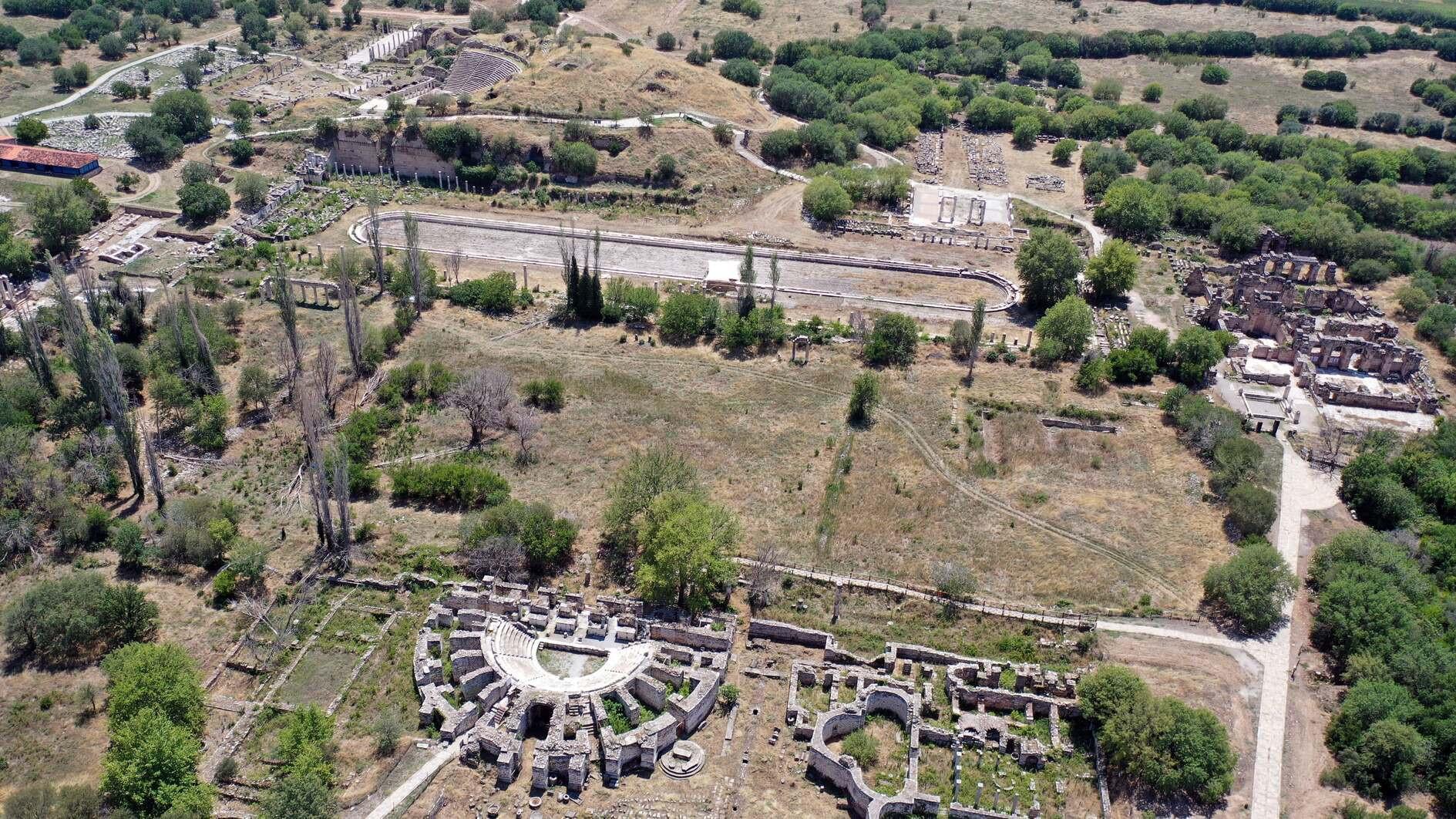
Traces of a marketplace, where all the peoples of the Eastern Mediterranean made shopping, have been unearthed in the ancient city of Aphrodisias in the Aydın.
The ancient city of Aphrodisias, located in the Karacasu district of the western province of Aydın, reflects the historical richness of Anatolia with its surviving monumental structures, stadium, city pool, theater and examples of ancient sculpture art, continues to host exciting archaeological discoveries for the excavation teams.
In Aphrodisias, the most famous of the cities dedicated to Aphrodite, the goddess of love and beauty, excavations are being carried out in different layers from the city's founding in the 5th century B.C. to the Seljuk period.
The head of the excavations, Professor R.R. Smith said that they obtained information about the city at different layers of history "in a much better way than they could have imagined" during their work on the city's main street, dating back to the late ancient era and early Byzantine period.
Smith said that the city entered a period of decline in the seventh century, that the columned streets and columns were destroyed, but despite this, people did not leave the place and continued to live by rebuilding a life on the collapsed buildings.
“We saw that there was still serious agricultural activity here. People realized that they could live here without the enormous marble buildings. All those marble buildings built in the Roman period, the baths, the gymnasiums... They realized that these were no longer a necessity, that they could live without them. We could call it a different kind of life, but it was not a dark period,” he said.
Stating that they found a very significant amount of coins, adding, “Our Turkish numismatic teams have also carried out a study on the coins. This place has definitely shown us that it was a market place and it was an international market used by all the people of the Eastern Mediterranean.”